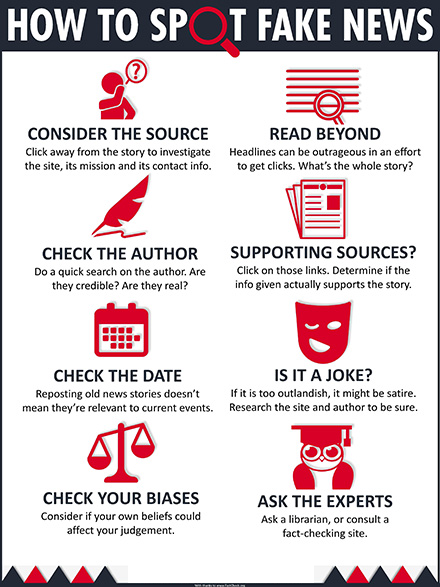Pandemic And Infodemic | 07 Apr 2020
This article is based on “Facts fight fear”, “Amid coronavirus outbreak, how information can be an epidemic too”, “Fake news in the time of coronavirus: Why it’s time to practice information hygiene”. It talks about the role of social media during the Covid-19 pandemic.
The Covid-19 pandemic has caused social and economic disruptions all around the globe. Moreover, the worrisome situation is not just because of the pandemic but the ease at which fake news has been spreading around it. The World Health Organization (WHO) admitted that humanity is fighting two foes — a pandemic and an “infodemic”.
Infodemic is an overabundance of information that makes it difficult for people to identify truthful and trustworthy sources from false or misleading ones. In the present state of emergency, a barrage of information on the virus has deluged the traditional and social media space.
The recent exodus of migrant labourers from NCR (risking spread of virus through community transmission to the rural areas where healthcare infrastructure is in a dismal state) was triggered due to panic created by some fake/misleading news on social media.
Though social media is acting as a fertile ground for dangerous rumour-mongering, it can act as an indispensable source of vital information.
Negative Role Played by Social Media
- There is a paradigm shift from the 20th-century ecosystem dominated by print and broadcast media to an increasingly digital, mobile and social media dominated ecosystem.
- The lack of filtering on online platforms negates any authentication mechanisms.
- Social Media, with its ability to amplify a message through endorsements and forwards, gives one the tool to reach a potential audience without needing substantial resources or access to expensive media technology.
- Social media provides the tools for an information cascade. It enables individuals to distribute large volumes of disinformation or fake news.
- Further, Social media not only changed the methods of news distribution but also changed the age-old beliefs of how news should look.
- Now, a tweet, which at most is 140 characters long, is considered a piece of news and true particularly if it comes from a person in authority.
- Today's decision-making is not based on individual rationality but from shared group-level narratives. Social media helps in making the false and misleading narratives of some social miscreants.
- These issues can be reflected in the Covid-19 pandemic.
- There are rising dangerous conspiracy theories of Covid-19 of being a Bioweapon.
- A rumour of a lockdown of essential commodities resulted in people hoarding the essential supplies.
Positive Role Played by Social Media
- Covid-19 has led to social distancing and lockdown all across the nation. In these conditions, social media serves as:
- A crucial conduit between families, friends, office, and a medium of entertainment.
- A reliable way for the victims of this virus to communicate with the outside world.
- Social media has also been instrumental in helping improve the situation.
- In response to Covid-19 pandemic, it gave birth to a fair share of online fundraisers. For example, donations in the PM-CARES fund got encouraged by people sharing this on social media.
- People are also giving money to financially struggling hospitals, as well as individuals at risk of dying from the disease.
- Scientists are using social media tools to collaborate.
- The coronavirus genome was openly published early on during the outbreak, allowing thousands of researchers to brainstorm possible solutions, cures and explanations.
- Social media displays and strengthens solidarity against this virus.For example, Indian Prime Minister called for lighting lamps to reinforce the public commitment to fight Covid-19.
- It is being used to spread preventive steps that one can take to fight Covid-19. These small changes in behaviours can have enormous consequences.
- WHO and other public health organizations also use social media to inform the public about the outbreak, and control the panic.
- The Supreme Court of India also issued a directive that a daily bulletin system with regard to the COVID-19 pandemic be made active by the government through all media avenues, including social media and forums to clear people’s doubts and to check fake news.
Way Forward
Information hygiene to start the war against fake news.
- Though Covid-19 and social media have highlighted the importance of maintaining personal hygiene, the conversation about information hygiene must now happen in the society. Information hygiene includes:
- Verifying the authentic source of fact.
- Double checking with some fact checking website.
- Asking some expert opinion on that particular issue.
- Applying rational thinking while going through a forwarded news on social media.
- Applying these ideas before sharing the same.
Role Played by Social Media Sites in Combating Fake News
Social media websites are actively fighting this misinformation and fear mongering. The social media platforms – for a welcome change – have taken the lead in busting the myths about coronavirus.
- Google has created an SOS Alert on COVID-19 for the six official UN languages and is expanding in other languages to make sure the first information the public receives is from the WHO website and the social media accounts of the WHO.
- Facebook has promised to ban ads that promise “cures” for the Covid-19 virus.
- Twitter says it will be applying a new broader definition of harm to address content that “goes directly against guidance from authoritative sources of global and local public health information” to counter misinformation.
|
Drishti Mains Question Social media can be an unstoppable force, especially in times of crisis. Discuss. |

